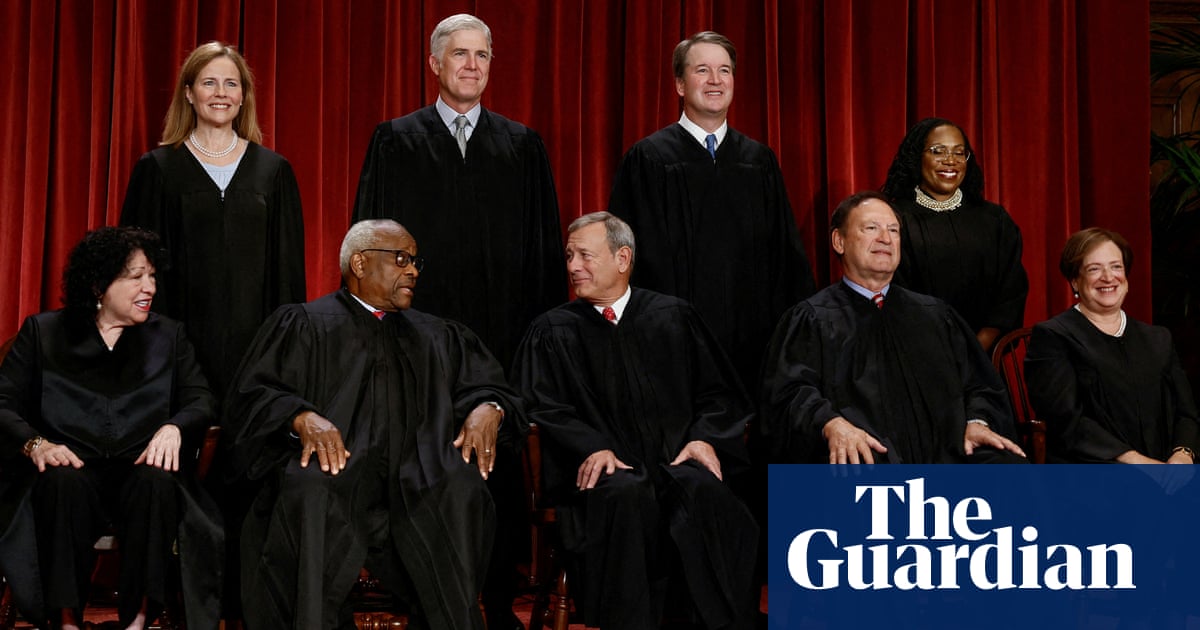Chief justice reportedly took unusually active role in three recent supreme court decisions centering on Trump
John Roberts Jr used his position as the US supreme court’s chief justice to urge his colleagues to rule quickly – and in favor – of Donald Trump ahead of the decision that granted him and other presidents immunity for official acts, according to a New York Times investigation published on Sunday.
The new report provides details about what was happening behind the scenes in the country’s highest court during the three recent supreme court decisions centering on – and generally favoring – the Republican former president.
Based on leaked memos, documentation of the proceedings, and interviews with court insiders, the Times report suggests that Roberts – who was appointed to the supreme court during Republican George W Bush’s presidency – took an unusually active role in the three cases in question. And he wrote the majority opinions on all three.



The pardon power is explicitly given to the president by the Constitution. Therefore it’s a core power with absolute immunity.
The president is also given the clear authority to direct his subordinates in the executive branch as the “chief Executive.” The SCOTUS has ruled that the president has almost unfettered power to hire/fire/order anyone in the federal government to do just about anything he wants with no restrictions.
So logically:
I guarantee this is not what the Framers envisioned or wanted, but this is what “conservative” judicial extremists on the SCOTUS have given us. Although I would be entirely unsurprised if they decided to roll this power back somehow if ever a Democratic president were to wield it.
I would argue that this sort of logical path wouldn’t be too shocking for the founders and they would just count on civility or elections to keep this from happening. The executive pardon itself is a fairly indefensible and corruption-facilitating loophole in the justice system.
You can see where this goes. Sadly, the founders weren’t nearly as clever and cynical as they needed to be to spot these exploits.
My guess is they figured if someone got to far out of line president would be forcibly removed and the constitution ammended. At the time 1 person didn’t have the ability to command armys across the world. Communications were by horse. You could likely take out the president with minimal effort if you wanted as the secret service didn’t exist yet either.
Send a boat out to deliver people to attack a fort in oppenents land. 2 days later an emissary delivers a surrender… Oops, you can’t catch the boat nor notify them on any other manner, weeks after a peace treaty is signed, people are are attacked by the people they surrendered too.
They did. They just had too much faith in people in government doing the right thing.
I didn’t think you could even pardon contempt, but apparently Trump pardoned Arpaio’s criminal contempt charge, and it stuck. There’s a long discussion with a bunch of history here: https://www.law.georgetown.edu/public-policy-journal/in-print-2/volume-18-number-1-winter-2020/can-a-presidential-pardon-trump-an-article-iii-courts-criminal-contempt-conviction-a-separation-of-powers-analysis-of-president-trumps-pardon-of-sheriff-joe-arpaio/